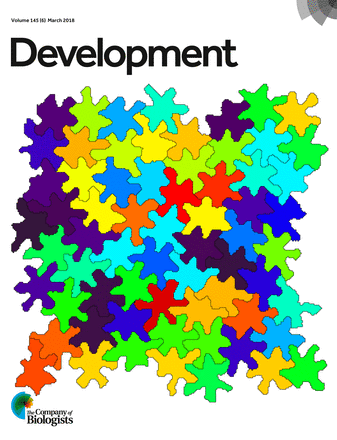Prothoracicotropic hormone modulates environmental adaptive plasticity through the control of developmental timing
Development. 2018 Mar 14;145(6). pii: dev159699. doi: 10.1242/dev.159699.
Shimell M1, Pan X2, Martin FA3,4, Ghosh AC2, Leopold P3, O’Connor MB2, Romero NM5.
Author information
1. Department of Genetics Cell Biology and Development, University of Minnesota, Minneapolis, MN 55455, USA oconn033@umn.edu nromero@unice.fr.
2. Department of Genetics Cell Biology and Development, University of Minnesota, Minneapolis, MN 55455, USA.
3. University Côte d’Azur, CNRS, Inserm, Institute of Biology Valrose, Parc Valrose, 06108 Nice, France.
4. Cajal Institute, Av Doctor Arce 37, 28002 Madrid, Spain.
5. University Côte d’Azur, CNRS, Inserm, Institute of Biology Valrose, Parc Valrose, 06108 Nice, France oconn033@umn.edu nromero@unice.fr.
Abstract
Adult size and fitness are controlled by a combination of genetics and environmental cues. In Drosophila, growth is confined to the larval phase and final body size is impacted by the duration of this phase, which is under neuroendocrine control. The neuropeptide prothoracicotropic hormone (PTTH) has been proposed to play a central role in controlling the length of the larval phase through regulation of ecdysone production, a steroid hormone that initiates larval molting and metamorphosis. Here, we test this by examining the consequences of null mutations in the Ptth gene for Drosophila development. Loss of Ptth causes several developmental defects, including a delay in developmental timing, increase in critical weight, loss of coordination between body and imaginal disc growth, and reduced adult survival in suboptimal environmental conditions such as nutritional deprivation or high population density. These defects are caused by a decrease in ecdysone production associated with altered transcription of ecdysone biosynthetic genes. Therefore, the PTTH signal contributes to coordination between environmental cues and the developmental program to ensure individual fitness and survival.
PMID: 29467242
DOI: 10.1242/dev.159699

